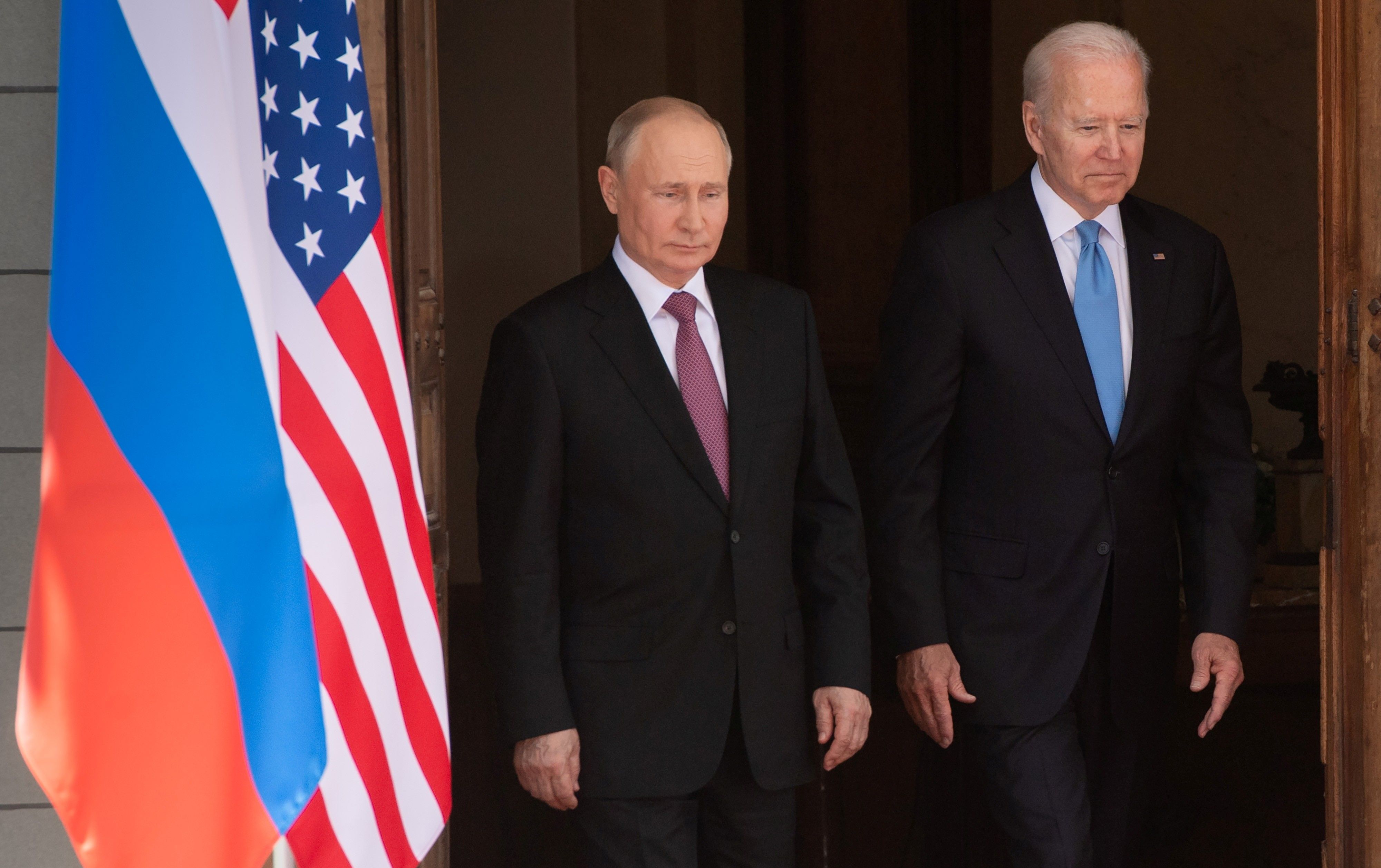The Biden administration has spent the past six months trying to get China and Russia to play ball on nuclear arms control. Observers are now asking: What does the U.S. have to show for these efforts? Not much, according to a top official on the National Security Council.
In recent comments at the Center for Strategic and International Studies (CSIS), Pranay Vaddi, the Senior Director for Arms Control, Disarmament, and Nonproliferation at the National Security Council, gave a highly anticipated update on the administration’s arms control efforts. On the China and Russia fronts, the picture ranged from dire to dismal.
When it comes to Russia, the Biden administration’s engagement strategy has been a failure. Just hours before the event at CSIS, Russian Foreign Minister Sergei Lavrov dismissed a U.S. proposal to resume a dialogue on nuclear arms control. As Vaddi explained, the U.S. had delivered a formal proposal to Russia in September, which included three parts: discussing non-compliance issues in the New Start Treaty (the last remaining deal capping U.S. and Russian arsenals), discussing a post-New Start framework before its 2026 expiration date, and managing nuclear risks. Russia had already formally rejected the proposal in December, Vaddi said, and the Kremlin has since made no substantive proposals of its own.
As for China, there were at least some positive developments in the overall relationship worth highlighting. The two sides re-established a bilateral working group on arms control and non-proliferation in November. Then, later that month, President Biden and President Xi met on the sidelines of APEC, where they announced the resumption of military-to-military dialogue. Most recently, on Jan. 9, American and Chinese military officials held Defense Policy Coordination Talks (DPCT). Talks between each country’s militaries were particularly important, according to Vaddi, “because our emphasis for so long has been really on strategic risk reduction.”
As important as these initial discussions were, Vaddi added that the Biden administration wants the arms control dialogues to be “results-oriented” and aimed towards getting to “practical solutions” to some of their shared security problems. This is a reasonable expectation on its face, but it also speaks to the Biden administration’s concern that such talks may not go further than mere dialogue and consultation, owing to China’s long-standing disinterest in such negotiations. At any rate, Vaddi gave no indication that we can expect any substantive arms control development in the near-future.
The lack of progress on arms control is a major disappointment for the White House that comes just six months after national security adviser Jake Sullivan’s much-ballyhooed speech at the Arms Control Association. Describing the current moment as an “inflection point” in the global nuclear security order, Sullivan laid out the Biden administration’s vision for arms control in an era of great power competition. This meant addressing the challenge presented by Russia and its suspension of the New Start Treaty, as well as questions and concerns regarding China’s ongoing nuclear buildup in light of its long-standing No First Use policy and traditionally limited nuclear deterrent.
The Biden administration’s failure to produce any substantive arms control wins through its good-faith engagement strategy will also make it all the harder to resist pressures to enter into a new nuclear arms race. Vaddi admits as much when he considers the prospect that Russia may not agree to a New Start follow-on. That very real possibility, he says, “has to be baked into our own thinking as we look at our own nuclear modernization.”
Vaddi addressed questions about this modernization effort as the discussion turned, naturally, to a discussion about the Congressional Commission on the Strategic Posture of the United States. Established in the 2022 NDAA, the Commission was mandated to assess and provide recommendations for the U.S.’s long-term strategic posture and nuclear strategy. Although the Commission’s members were selected ostensibly through a bipartisan process, the findings included in its final report, released on Oct. 16, struck many as anything but balanced – arguably a reflection of the outlook and interests of the defense industry, which nine of the 12 members reportedly maintain strong connections with the weapons industry. Called “a full-throated embrace of a U.S. nuclear build-up” by the Federation of American Scientists, the report argues that the U.S. must match the combined nuclear threat posed by Russia and China.
As the Commission report’s recommendations goes far beyond what is called for in the Biden administration’s own Nuclear Posture Review, Vaddi emphasized that questions about U.S. nuclear posture and arms control lie solely with the executive branch and the established interagency process, and that this report amounts only to “important data” to take into account. He did, however, concede that the Commission’s findings “communicate a sense of urgency that we share — that we are entering a two-peer environment. It’s never been dealt with before.”
Hinting at the ways in which the report was already putting pressure on the administration’s internal discussions, Vaddi went on to say that the Commission’s report has stimulated a lively conversation about U.S. nuclear posture, both at home and abroad. Vaddi shared that close allies and partners have asked how the U.S. is taking the Commission’s report into account. And, he added, the White House has no choice but to engage with it since the recommendations will likely serve as a “baseline of information” as Washington enters the “posture-hearing season.”
This refers to the annual spate of congressional hearings, typically in the spring months, in which the secretary of defense and other military leaders appear before the House and Senate Armed Service Committees to justify their budgets for the following fiscal year. Congress will no doubt be eager to see report recommendations make their way onto next year’s budget.
Overall, the prospects for real and respectable arms control initiatives with China and Russia by the end of Biden’s first term only seem to be getting worse, even as the threat of great power nuclear conflict becomes increasingly salient.















